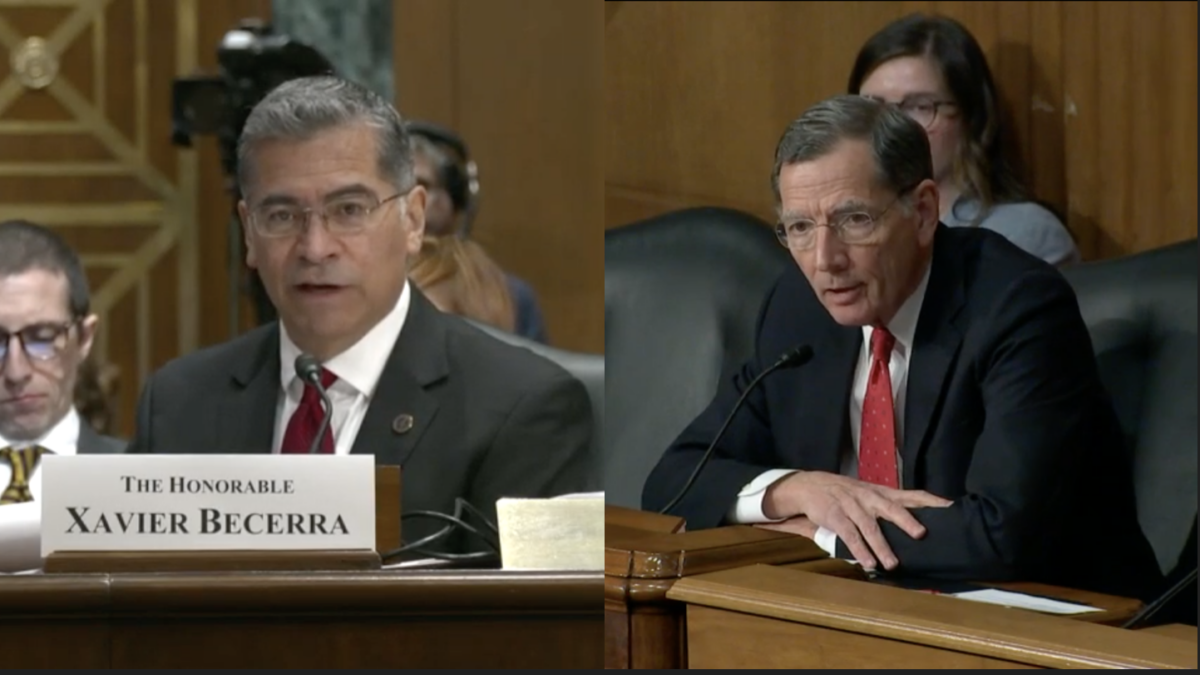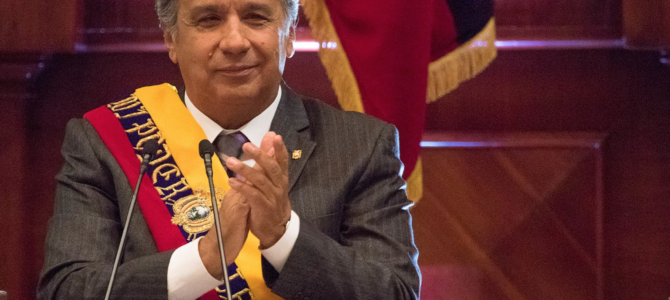
At a Mexican migrant camp on the Rio Grande across from Texas late this summer, Cameroonian migrant John Ameh said he had been in Nigeria, crowded among other Cameroonian refugees of an armed conflict, when he first heard about a South American mecca where anyone from anywhere in the world could fly in without a visa or permission.
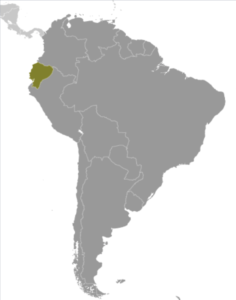 The country was Ecuador. He paid two Nigerians $2,500 to buy the tickets for him to Mariscal Sucre International Airport in Ecuador’s capital city of Quito. Once inside the country of the Galapagos Islands, Ameh — and many other Cameroonians who came before and after him this year — was given to understand they would be within easy striking distance of the U.S. southern border.
The country was Ecuador. He paid two Nigerians $2,500 to buy the tickets for him to Mariscal Sucre International Airport in Ecuador’s capital city of Quito. Once inside the country of the Galapagos Islands, Ameh — and many other Cameroonians who came before and after him this year — was given to understand they would be within easy striking distance of the U.S. southern border.
“It was the first time I ever thought I could go to America,” he told me in the native English of that country’s conflict-torn anglophone regions, in the Mexican border city of Acuna. “I found some other blacks who said they were heading up north to the United States. I just went with them.”
Within a month or so, a long hike through the Columbia-Panama jungle and a series of bus rides brought him and dozens of other Cameroonians, Congolese, Angolans, and Ghanaians to the Mexican side of the Texas border, where they looked for a way over to a new life.
But Ecuador’s front door recently slammed shut on many Africans and Middle-Easterners who have been using it as their visa-free entrance through an American back door broken down by 1 million Central Americans. Among the least covered and least known of the Trump administration’s efforts to end a mass migration crisis — to include historic new swells of “extra-continental” migrants from the undeveloped world and Muslim-majority countries — was a pressure campaign to have Ecuador curtail its visa-free policy, according to several Department of Homeland Security law enforcement sources who were not authorized to speak on the record.
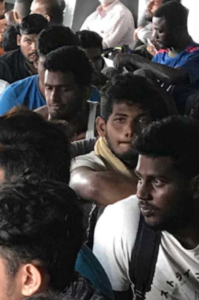 In August, partly because Nicaragua had apprehended suspected ISIS operatives from Iraq, Ecuador’s Ministry of Foreign Affairs announced with no fanfare that it has increased the number of countries whose citizens will now need a “special visa” to enter the country. Ecuadorian officials emphasized that citizens from more than 90 percent of the world’s countries can still enter with only their passports.
In August, partly because Nicaragua had apprehended suspected ISIS operatives from Iraq, Ecuador’s Ministry of Foreign Affairs announced with no fanfare that it has increased the number of countries whose citizens will now need a “special visa” to enter the country. Ecuadorian officials emphasized that citizens from more than 90 percent of the world’s countries can still enter with only their passports.
But in part due to “human trafficking” and “possible terrorist activities,” no longer will that privilege apply to travelers from the ISIS havens of Syria, Iraq, and Libya, as well as those from Angola, Cameroon, Gambia, Ghana, Guinea, India, the Democratic Republic of the Congo, and Sri Lanka.
A Visa-Free Gap in U.S. National Security
Trump emissaries have much more publicly nation-hopped along the routes leading to the southern border to persuade Panama, Costa Rica, Honduras, Guatemala, and Colombia to help stop the flood of migrants gathering from all over the globe to get what the Central Americans got: quick release into the United States due to recently discovered legal loopholes. But virtually nothing has been reported about Ecuador’s role in this or how it became an important counterterrorism pressure point for America.
In 2008, perhaps unwittingly, Ecuador transformed itself into an international human smuggling paradise, a primary landing zone into the Western Hemisphere for untold thousands of U.S.-bound extra-continentals flying in from all of the world’s trouble spots. That was when leftist Ecuadorian President Rafael Correa, declaring an end to “this 20th-century invention of passports and visas” and deifying the “principle of universal citizenship,” decided to unilaterally lift all visa requirements for anyone in the world to enter Ecuador without permission. Naturally,smugglers flooded Ecuador with Iraqis, Pakistanis, Syrians, Iranians, Chinese, Indians, Africans, and many other nationalities on their way to illegally entering America.
It probably took the apprehensions of suspected ISIS migrants staging out of Ecuador for the Trump administration to realize the country certainly mattered as much as Mexico as an important piece of the policy puzzle to end the border crisis without the divided Congress. Ecuadorian Interior Minister Maria Paula Romo provided a clue of that when, in announcing the new restrictions, she mentioned Nicaragua’s recent apprehension of several ISIS suspects who’d entered South America initially through Ecuador. But that was hardly the first time America came calling in Ecuador about terrorist travel.
Ecuador’s Checkered Past Enforcing Travel Ban Lists
Two years after Ecuador laid out its visa-less welcome mat in 2008, the Obama administration threatened to cut off millions in foreign aid if the country did not put restrictions on 10 nationalities regarded as a terrorism infiltration threat to the southern border, according to Luisa Feline Freier in a 2013 paper for the Center for Comparative Immigration Studies. Immigrants from Afghanistan, Somalia, Bangladesh, Eritrea, Ethiopia, Kenya, and Pakistan were to be exempted from visa-free travel, among several other countries.
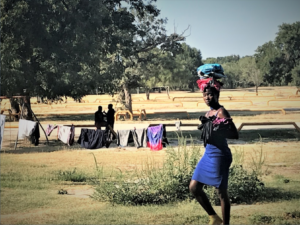 The latest list expansion certainly doesn’t guarantee that Ecuador will completely plug the gaping hole in this part of the dam, if past experience is any guide. Freier, a friend of open-borders immigration, noted in passing that the Americans weren’t happy about Ecuador’s enforcement of its first list.
The latest list expansion certainly doesn’t guarantee that Ecuador will completely plug the gaping hole in this part of the dam, if past experience is any guide. Freier, a friend of open-borders immigration, noted in passing that the Americans weren’t happy about Ecuador’s enforcement of its first list.
In her paper, she cited secret U.S. diplomatic cables published by WikiLeaks showing that American diplomats felt compelled to keep raising concerns the country was not enforcing the list. By 2011, the United States deployed the FBI to Ecuador and pressured the country to begin arresting Muslim immigrants, especially Pakistanis pooling in the country. The FBI was even on hand to interview many.

We shouldn’t place too much hope on Ecuador’s travel ban for other reasons, namely that human smugglers and those bent on reaching the U.S. border are notoriously adaptable to changes like this. They can be expected either to corrupt Ecuadorian inspections and immigration personnel or simply to try other countries such as Brazil, Nicaragua, and Peru to get to the American border.
But because this Ecuadorian move comes at a different political climate than the first 2010 list, there’s a better chance Ecuador may be taken off line for the first time in years. Ecuador’s new president, Lenin Moreno, replaced leftist Correa two years ago. Moreno and his administration are seen as friendlier toward the United States and more authentically amenable to American national security interests. Perhaps enforcement of the visa restrictions will actually happen this time under the new regime.
Ecuador is geographically distant, but immigration-conscious American policymakers should not discount its linchpin importance in countering terrorist migration and the current immigration crisis, and should hold Ecuador to account on enforcing its list.
Meanwhile, the Trump administration, should it ever officially acknowledge its Ecuador diplomacy, should be credited for stitching in yet another immigration policy achievement to a patchwork of diplomacy-based arrangements with Mexico, El Salvador, Guatemala, and other countries, significantly slowing illegal border crossings in recent months.





